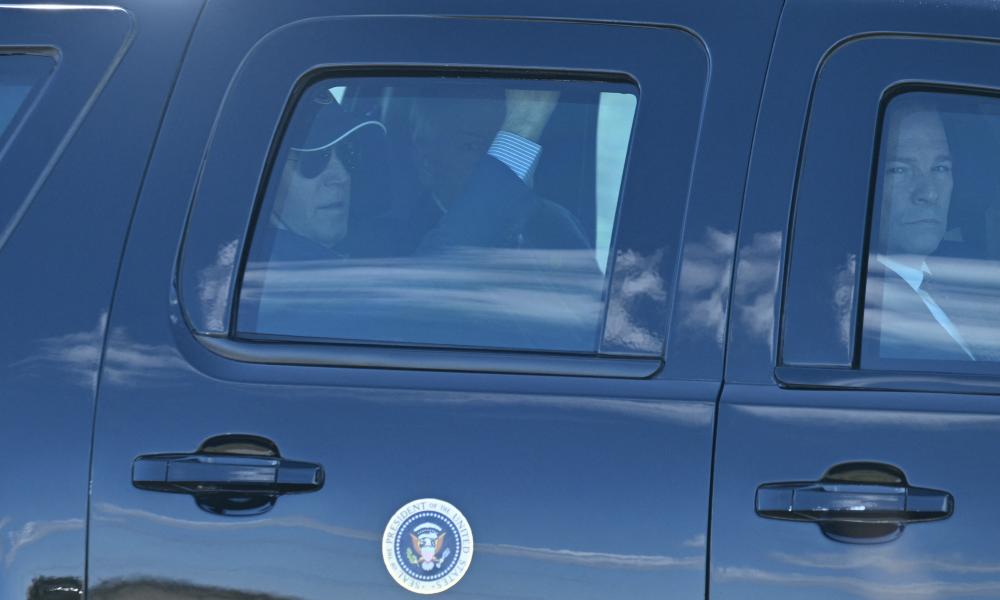Iran launched dozens of drones towards Israel on Saturday at the start of an attack following days of acute tension building up in the region and warnings from the US and elsewhere about a wider conflict erupting.
R Adm Daniel Hagari, an Israeli military spokesperson, said that Iran launched the new offensive late on Saturday.
It was the Islamic Republic’s first-ever direct attack on the Jewish state, a development that brings the two countries to the brink of all-out conflict after more than a decade of shadow war and soaring stress six months into Israel’s war in Gaza following the Hamas attack last October.
In a statement an hour later, Iran’s Revolutionary Guards Corp said it had also launched missiles at “specific targets” in Israel as part of what it deemed “Operation True Promise”.
It was reported on Israeli television that Iran had fired more than 100 drones as well as cruise missiles towards Israel, without any immediate further confirmation of that claim, until Iran later said it had fired a “first wave” of ballistic missiles.
Joe Biden rushed back to Washington on Saturday afternoon from a weekend trip to Delaware as it became clear from leadership signals that some sort of an attack by Iran was imminent.
The weapons were understood to be heading towards Israel, just a few hours after the White House had first announced the US president was returning to Washington from a planned weekend at the beach in Delaware, “to consult with his national security team about events in the Middle East”.
Related: World waits anxiously for Iranian response to Israel’s killing of top general
As the news of the Iranian offensive broke, Jordan said it was ready to shoot down any Iranian aircraft or drones that violated its airspace, Lebanon closed its airspace and Egypt called for the “utmost restraint” to spare further war and instability in the Middle East.
The roar of Israeli air force jets could be heard across the Jewish state, and the country’s sophisticated Iron Dome air defence system was expected to be able to intercept relatively slow-moving drones, but could be overwhelmed by large volumes of incoming fire.
There had been nearly two weeks of speculation about when, where and how Tehran or its proxy forces in Syria, Iraq and Yemen would respond to a 1 April strike on an Iranian diplomatic building in the Syrian capital of Damascus, which killed Gen Mohammad Reza Zahedi, a senior figure in Iran’s Islamic Revolutionary Guards, and eight other officers, with the protagonist of that attack widely presumed to have been Israel.
Biden soon after made public that Israel had not shared its intentions with the US and said he had not had prior knowledge of the strike in Syria, signaling that, in addition to the Israel’s blockade on Gaza provoking famine, US influence over Israel has limits.
In addition, Biden’s hasty return to the White House on Saturday followed his saying on Friday that he expected an Iranian attack on Israel “sooner rather than later” and issued a last-ditch message to Tehran, saying: “Don’t,” which clearly was not heeded.
Earlier on Saturday, Iran’s paramilitary Revolutionary Guard Corps in the strait of Hormuz, 50 nautical miles off the coast of the United Arab Emirates, seized an Israeli-affiliated container ship.
The ship’s operator, the Italian-Swiss group MSC, later confirmed that Iranian authorities had boarded it, rappelling from a helicopter. The White House condemned the seizure of the British-owned vessel.
National Security Council spokesperson Adrienne Watson said the US strongly condemned the seizure and urged Iran to release the ship and crew immediately.
“We will work with our partners to hold Iran to account for its actions,” she said, warning that “seizing a civilian vessel without provocation is a blatant violation of international law and an act of piracy.”.
Upon returning to the White House, Biden walked into the Oval Office and was expected to convene there and in the Situation Room with his senior national security, intelligence, diplomatic and military leadership.
According to the White House, the president would be joined by Lloyd Austin, the defence secretary; Antony Blinken, the secretary of state; Gen Charles Brown, the chair of the joint chiefs of staff; William Burns, the CIA director; Avril Haines, the director of national intelligence; and Jake Sullivan, the national security adviser.
Austin spoke with Yoav Gallant, the Israeli defense minister, earlier on Saturday to discuss the urgent regional threats in the Middle East and “reiterated unwavering US support for Israel’s defense”, according to the Pentagon.
The US, along with its allies, had sent direct messages to Tehran to warn against further escalating the conflict.
The US national security adviser, Jake Sullivan, also spoke with his counterpart to reinforce Washington’s “ironclad commitment to the security of Israel”.
Meanwhile, Lebanon’s Iran-backed Hezbollah group said it fired dozens of rockets at Israeli artillery positions on Friday, a bombardment it said was in response to Israeli strikes across the Israel-Lebanon border, the latest in near-daily exchanges of artillery.
Reuters, Agence France-Presse and the Associated Press contributed reporting
